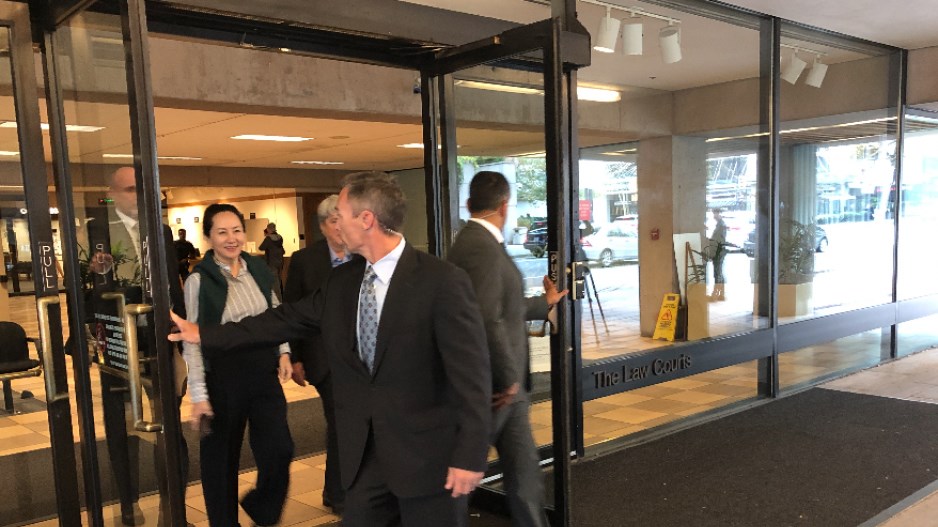The Meng Wanzhou extradition hearings continued Tuesday afternoon in a shortened session, where both Crown counsel Diba Majzub and defence lawyer Mona Duckett questioned Canada Border Services Agency superintendent Sanjit Dhillon.
Meng’s defence has been systematically targetting the note-taking and record-keeping practices of the RCMP and the CBSA on Dec. 1, 2018 – the day where the Huawei Technologies Co. Ltd. CFO was arrested in Vancouver after arriving from Hong Kong.
On Tuesday, Dhillon admitted that detailed notes were not taken as regulations outlined – but added that he has not intended to hide any content from the court, including refuting Duckett’s supposition that some emails on the case may have been deleted.
“As soon as I knew that this is going to court, I’ve kept a folder,” Dhillon said. “Every email that I have for this proceeding – and for any future legal proceedings – is in that folder.”
Dhillon also refuted Duckett’s stance that an outstanding arrest warrant for Meng in the United States for fraud would have automatically meant inadmissibility into Canada – thus requiring the CBSA to put Meng on a plane back to Hong Kong.
“I would never issue a decision [on admissibility] until we’ve talked to the passenger first,” Dhillon said, noting that – in Meng’s case – the CBSA decided to suspend the admissibility exam for the Chinese executive after three hours of questioning, allowing her to move into the jurisdiction of the RCMP to be arrested.
Had Meng been freed by the RCMP, Meng was technically suppose to return to the CBSA to complete her border check, Dhillon added.
Under the questioning earlier of Majzub, Dhillon also noted that he did some open-source research on Meng when learning of the authorities awaiting the arrival of the Chinese executive at YVR. The research, he said, turned up news articles that raised national security concerns (which required the three-hour inspection upon Meng’s entry to YVR).
“Under IRPA [The Immigration and Refugee Protection Act], any attempt to subvert the Canadian government is grounds for national security concerns,” Dhillon said, noting news reports of other countries showing concern for Huawei devices’ possible connection to Chinese servers mentioned the possible threat of espionage.
Duckett, however, said a real national security concern investigation would have required days – not hours – of inspection, accusing the CBSA of not turning up enough evidence of espionage to justify the three-hour secondary inspection.
Dhillon replied that he believe there was enough uncovered, however – through Meng’s non-verbal behaviour on the day of her arrival in Vancouver – to further the inspection (which would technically take place after RCMP custody).
On Monday, Duckett said the defence intends to show that senior CBSA officials told the officers on the Meng case to refrain from taking notes because the information could be requested for in court under information/transparency laws.
The Crown has maintained that the RCMP and the CBSA acted routinely to carry out the extradition request from the United States, and there was no pre-planned conspiracy to secure evidence before reading Meng her charter rights.
Meng and Huawei are accused of money laundering, violating U.S. sanctions in Iran and North Korea, as well as stealing trade secrets from U.S. companies like T-Mobile USA.



